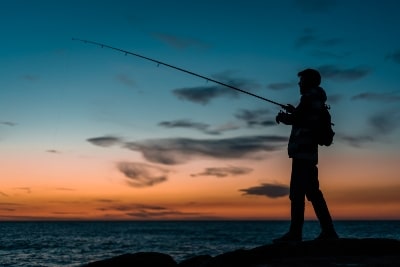Make Sure to get your Florida Fishing License

Florida is one of the most famous areas in the world to go fishing. Check out how to get your fishing license below and the lowest price options.
Fishing licenses
If you are planning to go fishing in Florida, you should get a fishing license. These licenses can be obtained in a variety of ways depending on the type of fishing you’re planning to do. For example, a saltwater license will be needed if you’re planning on fishing in the sea, while a freshwater license is required if you’re planning on fishing in a lake or a river. If you are planning on fishing in both types of waters, you will have to use extra caution to avoid catching fish in mixed waters.
Fishing licenses in Florida help protect the state’s marine life by providing funds for fisheries conservation. Additionally, fishing licenses allow fisheries managers to set limits on how many anglers can enter certain waters at one time. These limits can help protect the habitat of a variety of species, which means that fishing licenses are essential to protecting the state’s natural resources.
A non-resident fishing license allows non-Florida residents to fish in the state’s inland bodies of water. Non-resident licenses also allow non-residents to harvest certain native fish, including turkey and deer. This license also allows non-residents to fish in the state’s Wildlife Management Areas.
You may also purchase a fishing license from a county tax collector. These licenses can be found at sports stores, tackle shops, and hardware stores. The license fees are set by the Florida Legislature, but are subject to change. It is recommended that you get a license before you start fishing.
Lifetime licenses are also available. These licenses are useful for people who want to pass on their love of outdoor recreation to their children. Unlike short-term licenses, these licenses are more durable and can be used again. Additionally, they are less expensive than short-term licenses.
The cost of fishing licenses in Florida can vary depending on your age. Those aged 13 and older can purchase one-year shoreline-only or watercraft-plus licenses, while non-residents can buy three-day, seven-day, and lifetime licenses. The latter will remain active even if you move out of the state.
A non-resident fishing license in Florida costs $47 per year and is required if you want to fish in both saltwater and freshwater habitats. A three-day freshwater license costs $17 and a seven-day license costs $30. A five-year license costs $79 for residents.
In addition to the standard fishing license, residents of Florida must also purchase a fishing license if they are age 16 or older. Senior citizens and active military personnel are also exempt from fishing license requirements. Residents who are 65 years or older must present proof of age and residency to get the exemption. Furthermore, they can get a free hunting and fishing certificate from county tax collector’s offices.
The most important thing you should know about fishing licenses in Florida is that you need a license if you plan on landing any saltwater or freshwater fish. A saltwater license is also essential if you plan to fish for marine plants or other saltwater organisms.
Resident 65+ certificate
A Resident 65+ certificate is a license that allows you to hunt or fish in Florida. This document is issued by the Florida Fish and Wildlife Conservation Commission. You can get the certificate by downloading the app from the PlayStore or Apple Store. The license covers freshwater and saltwater fishing, and you can hunt waterfowl and migratory birds. It also includes the right to hunt with archery, crossbow, or muzzle-loading gun in wildlife management areas.
To get your Resident 65+ certificate, you should be a resident of Florida. In order to get a certificate, you must be at least 65 years old. Florida residents can get their certificates from their county’s tax collector’s office. It’s important to remember that Florida residents need to hunt or fish in the county they live in. Nonresidents, however, must purchase a fishing or hunting license.
The license is nonrefundable. It is available at most Sporting Goods stores. A retail-agent fee of $0.50 will apply to your license purchase. If you’re disabled, you can request special accommodations from the Florida Fish and Wildlife Commission. Payment can be made by credit card or cash. The office accepts Master Card, Visa, Discover, and American Express.
License renewal
To make renewing licenses easier, the Florida Fish and Wildlife Commission has introduced an auto-renew option for resident and nonresident customers. Annual licenses are valid for 365 days from the purchase date, but many people do not realize that they need to renew them before they expire. This practice hurts the FWC’s conservation efforts, so the auto-renew option was designed to improve the customer experience and increase conservation revenue.
To renew a fishing license, visit the Florida Fish and Wildlife Conservation Commission’s online license renewal site. You can also purchase licenses in retail locations. These include department stores, sporting goods stores, bait and tackle shops, and Walmart Supercenter. Once you have purchased your license, you can take it with you when you go outdoors.
Fishing licenses are needed to go on a fishing trip in Florida. Residents of the state are required to get a license to fish in either freshwater or saltwater lakes and rivers. Depending on the type of fish you plan to catch, you may need a saltwater or freshwater fishing license. These licenses are also valid even if you move out of the state. The state also offers a discounted hunting and fishing license for residents aged 65 or older. This license covers hunting and fishing for certain species, such as snook, lobster, and tarpon. Those who are over 65 do not need to renew their fishing licenses, but if you are, you’ll need to show your residency and age to qualify for these exemptions.

Heather is the lead content creator at FloridaFabulous.com She also writes in the pool and outdoor space. At FloridaFabulous.com Heather specializes in Florida based travel and tips articles.